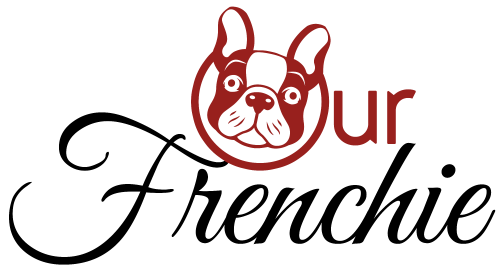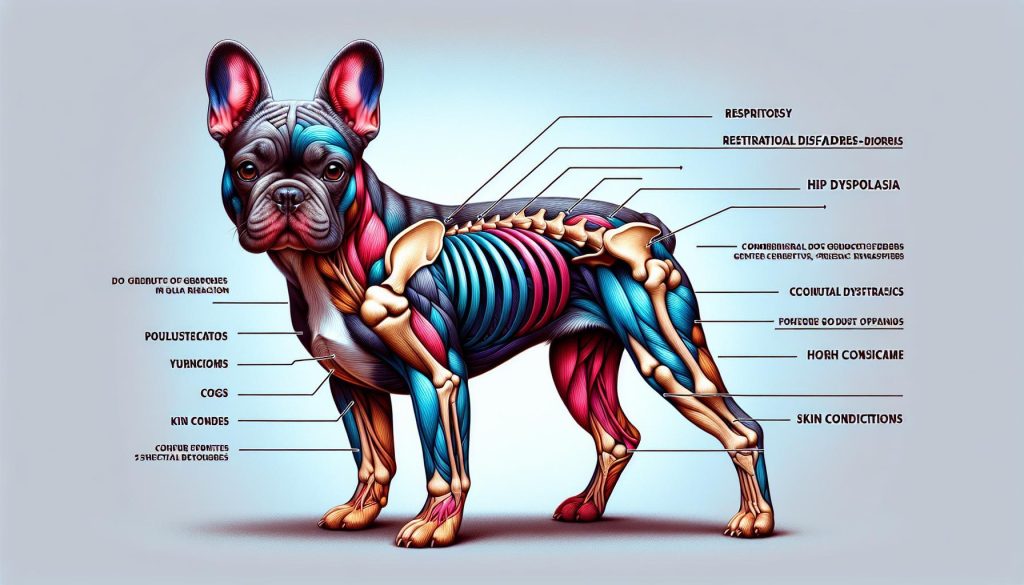About
Common Genetic Health Issues in French Bulldogs
Page Contents
French Bulldogs,with their charming personalities and distinctive bat-like ears,have become one of the most popular dog breeds worldwide. However, their unique physical characteristics come at a cost, making them prone to a variety of genetic health issues. This article delves into the common genetic conditions affecting French Bulldogs, from breathing difficulties due to brachycephalic airway syndrome to spinal disorders like intervertebral disc disease. Understanding these health challenges is crucial for current and prospective owners to ensure the well-being of their beloved pets. Explore how informed breeding practices and vigilant care can definitely help mitigate these issues.
Understanding Brachycephalic Syndrome
French Bulldogs, with their adorable flat faces and compact bodies, are prone to a condition known as **Brachycephalic Syndrome**.This syndrome is a collection of upper airway abnormalities commonly found in brachycephalic breeds. The unique structure of their skulls, which gives them their characteristic appearance, can lead to several respiratory issues. These issues arise due to the combination of elongated soft palates, stenotic nares (narrow nostrils), and everted laryngeal saccules, all of which can obstruct airflow and make breathing more challenging for these dogs.
Owners of French Bulldogs should be aware of the symptoms that may indicate the presence of this syndrome. **Signs to watch for include:**
- Increased respiratory noise or snoring, even when the dog is awake
- Exercise intolerance or difficulty breathing during physical activity
- Coughing or gagging, especially after eating or drinking
- heat intolerance, as the dog may struggle to cool down efficiently
- Cyanosis, or a bluish tint to the gums and tongue, indicating lack of oxygen
Early diagnosis and management are crucial to improving the quality of life for French Bulldogs affected by this syndrome. Veterinary interventions may include surgical procedures to widen the nostrils,shorten the soft palate,or remove the everted saccules. Additionally,owners can help manage the condition by maintaining a healthy weight for their dogs,avoiding excessive exercise in hot weather,and providing a calm and stress-free surroundings. with proper care, French Bulldogs with brachycephalic Syndrome can lead happy, healthy lives.
Dealing with Hip Dysplasia in Bulldogs
hip dysplasia is a important concern for french Bulldogs, given their unique body structure and genetic predisposition. This condition occurs when the hip joint doesn’t fit together perfectly, leading to discomfort and potential mobility issues. **Early detection** is crucial for managing this condition effectively. Regular veterinary check-ups can help identify the early signs, such as limping or reluctance to exercise. If you notice any of these symptoms, it’s essential to consult with yoru vet for a thorough examination.
Managing hip dysplasia involves a combination of lifestyle adjustments and medical interventions. Here are some strategies to consider:
- **Weight Management**: Maintaining a healthy weight is critical. Excess weight can put additional stress on the hip joints, exacerbating the condition.
- **Exercise**: While regular exercise is vital for overall health, it’s significant to choose low-impact activities that don’t strain the hips. Swimming is an excellent option for maintaining muscle tone without putting pressure on the joints.
- **Dietary Supplements**: Supplements such as glucosamine and chondroitin can support joint health. Always consult with your vet before introducing any new supplements to your dog’s diet.
In certain specific cases, surgical intervention might potentially be necessary to improve the quality of life for dogs with severe hip dysplasia. Procedures like **femoral head ostectomy** or **total hip replacement** can be considered, depending on the severity of the condition and the dog’s overall health. Working closely with a veterinarian and possibly a veterinary orthopedic specialist will provide the best outcome for managing this challenging condition.
Identifying Allergies and Skin Conditions
French Bulldogs are prone to a variety of allergies and skin conditions,which can significantly impact their quality of life. These issues often manifest as itching, redness, and irritation, and can be caused by environmental allergens, food sensitivities, or even genetic predispositions.**Identifying the root cause** is crucial for effective management and treatment.
Common allergens include dust mites, pollen, and certain food ingredients. Owners should be observant of symptoms such as excessive scratching,licking,or the appearance of hot spots. **Regular grooming and skin checks** can definitely help in early detection. It is also beneficial to maintain a clean living environment and consider hypoallergenic diets if food allergies are suspected.
- **Environmental Allergies**: Often seasonal, these can be managed with antihistamines or allergy shots as prescribed by a veterinarian.
- **Food Allergies**: Symptoms may include gastrointestinal issues alongside skin problems. An elimination diet can definitely help pinpoint specific triggers.
- **Genetic Skin Conditions**: Conditions like atopic dermatitis may require specialized treatments and ongoing care.
Consulting with a veterinarian for accurate diagnosis and treatment options is recommended. They may suggest topical treatments, dietary adjustments, or medication to alleviate symptoms and improve your French Bulldog’s comfort and health.
Managing Intervertebral Disc Disease
When dealing with intervertebral disc disease (IVDD) in French Bulldogs, proactive management is crucial to ensure your pet’s comfort and quality of life. this condition,common in breeds with elongated spines,involves the degeneration of the discs that act as cushions between the vertebrae. Early detection is key, so watch for symptoms like back pain, difficulty walking, or reluctance to jump.
**Treatment Options:**
- Conservative Management: This often includes strict rest, anti-inflammatory medications, and pain relief. Physical therapy can also be beneficial in maintaining muscle strength and mobility.
- Surgical Intervention: In more severe cases, surgery may be necessary to relieve pressure on the spinal cord. This is typically considered when conservative methods don’t alleviate symptoms or if neurological deficits are present.
**Lifestyle Adjustments:**
- Weight Management: Keeping your French Bulldog at a healthy weight reduces strain on their spine.
- Controlled Exercise: Regular,low-impact activities like swimming can help maintain fitness without putting excess pressure on the spine.
- Environmental Modifications: Using ramps instead of stairs and providing supportive bedding can help minimize the risk of injury.
By implementing these strategies, you can effectively manage IVDD and enhance your French Bulldog’s well-being. Regular veterinary check-ups are essential to monitor the condition and adjust treatment plans as needed.
Addressing Eye Problems in French Bulldogs
French Bulldogs are prone to a variety of eye problems due to their unique facial structure. **Cherry eye**, a condition where the gland of the third eyelid protrudes, is common in this breed. This can lead to irritation and increased tear production. Surgical intervention is often recommended to reposition the gland and prevent further complications.
Another frequent issue is **entropion**, where the eyelid rolls inward, causing the eyelashes to rub against the cornea.This can lead to discomfort and potential damage to the eye. Regular check-ups and, in some cases, corrective surgery are essential to manage this condition effectively.
- **corneal ulcers**: These are painful and can occur due to trauma or infection. Prompt veterinary attention is crucial to prevent permanent damage.
- **Dry eye syndrome**: This occurs when there is insufficient tear production, leading to irritation and potential infection. treatment often includes artificial tears and medications to stimulate tear production.
Regular eye examinations by a veterinarian can help in early detection and management of these conditions,ensuring your French Bulldog maintains optimal eye health.
Heart Health Concerns in French Bulldogs
French Bulldogs, with their charming personalities and distinctive appearance, are unfortunately prone to certain heart health issues. Among the most common concerns is **pulmonic stenosis**, a condition where the blood flow from the heart to the lungs is obstructed due to a narrowing of the pulmonary valve. This can lead to increased pressure in the heart and may cause symptoms such as fatigue, difficulty breathing, or even fainting. Regular veterinary check-ups and echocardiograms are essential in diagnosing this condition early and managing it effectively.
Another heart-related issue that French Bulldogs may face is **mitral valve disease**. This condition involves the degeneration of the mitral valve, leading to improper closure and causing blood to leak backward into the heart. Over time, this can result in heart enlargement and congestive heart failure. Owners should be vigilant for signs such as coughing, reduced exercise tolerance, and rapid breathing. Early intervention with medication can help manage symptoms and improve quality of life.
- **Pulmonic Stenosis**: Narrowing of the pulmonary valve.
- **Mitral Valve Disease**: Degeneration of the mitral valve.
- **Symptoms to Watch for**: Fatigue, difficulty breathing, coughing, and fainting.
- **Management**: Regular veterinary check-ups,echocardiograms,and early intervention with medication.
Breeding Practices for Healthier Bulldogs
To improve the overall health of French Bulldogs, ethical breeding practices are paramount. Responsible breeders prioritize health over aesthetics, focusing on genetic diversity and the reduction of hereditary health issues. By carefully selecting breeding pairs, breeders can minimize the risk of passing on common genetic disorders such as brachycephalic obstructive airway syndrome (BOAS), hip dysplasia, and skin allergies.
**Key strategies** for healthier breeding include:
- **Genetic Testing**: Comprehensive genetic screening helps identify carriers of harmful genes, ensuring that only healthy and genetically sound dogs are used for breeding.
- **Health Certifications**: Obtaining certifications from veterinary specialists can verify that both the sire and dam are free from significant health issues, providing peace of mind to potential puppy owners.
- **Outcrossing**: Introducing new bloodlines through outcrossing can enhance genetic diversity, reducing the prevalence of inherited conditions and strengthening the breed’s overall health.
By adhering to these practices, breeders can contribute to a healthier future for French Bulldogs, ensuring that these beloved companions can lead longer, happier lives. Collaboration with veterinarians and geneticists further supports these efforts, as ongoing research continues to uncover new insights into canine health and genetics.
Diet and Exercise tips for Longevity
Ensuring the longevity of French Bulldogs requires a balanced approach to diet and exercise that accommodates their unique genetic predispositions. **Nutrition** plays a pivotal role in maintaining their health, given their tendency to develop obesity and associated complications. Opt for high-quality, protein-rich dog food that supports muscle maintenance while being mindful of calorie content. incorporate foods rich in omega-3 fatty acids, such as fish oil, to support joint health and reduce inflammation. It’s advisable to consult with a veterinarian to tailor a diet plan that addresses specific health concerns, such as allergies or digestive issues.
**Exercise** is equally crucial, though it needs to be approached with caution due to their brachycephalic nature, which can lead to respiratory challenges. Focus on short, moderate-intensity activities that prevent overheating and exhaustion. Consider the following exercise tips:
- Engage in regular, brief walks during cooler parts of the day to avoid heat stress.
- Incorporate interactive play sessions that stimulate their minds and bodies without excessive exertion.
- Provide opportunities for low-impact activities, such as swimming, which can be beneficial for joint health and cardiovascular fitness.
By combining a well-balanced diet with carefully planned exercise routines,you can significantly enhance the quality and length of life for your French bulldog,helping them thrive despite their genetic predispositions.
To Wrap It Up
understanding the common genetic health issues in French Bulldogs is crucial for both current and prospective owners. By being informed about conditions such as brachycephalic syndrome, hip dysplasia, and skin allergies, you can take proactive steps to ensure your pet’s well-being. Regular veterinary check-ups,a balanced diet,and responsible breeding practices are essential in mitigating these health challenges.Ultimately, with the right care and attention, French bulldogs can lead happy, healthy lives, bringing joy to their families. Stay informed and committed to your pet’s health for a rewarding companionship.

